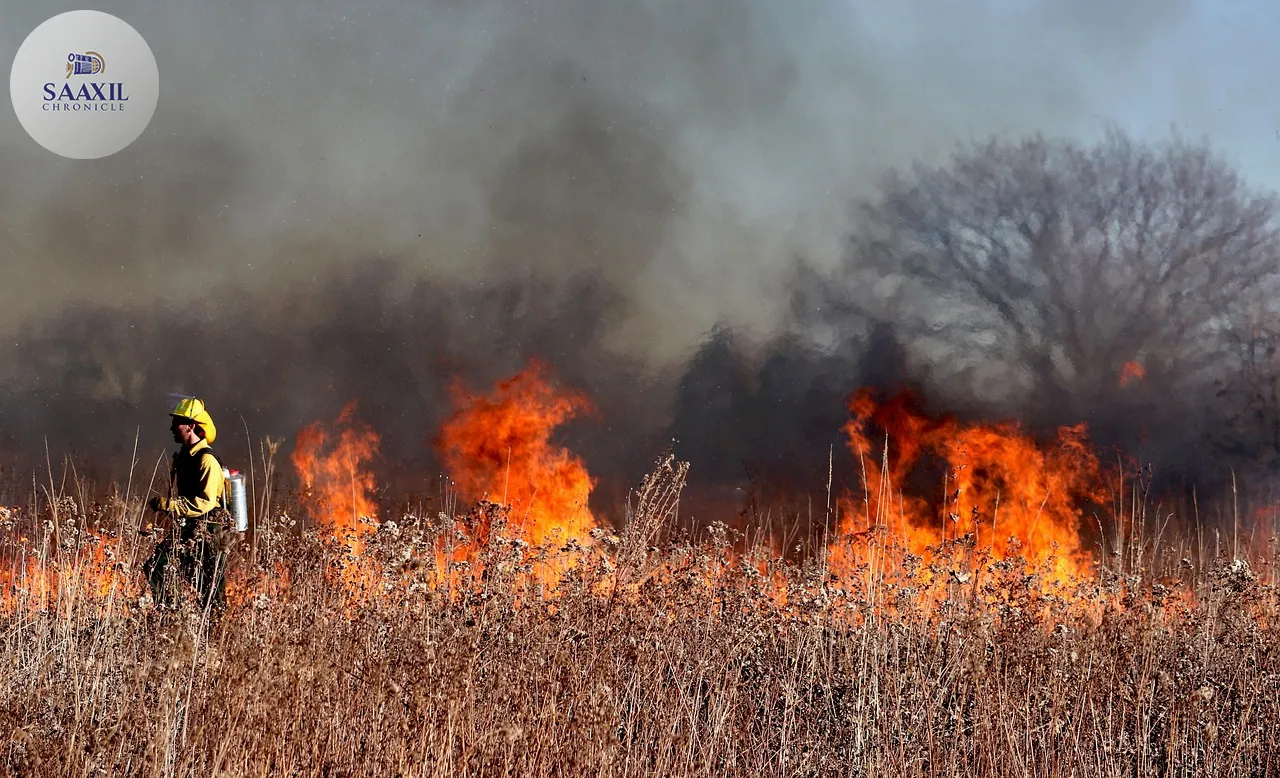Wildfires in the UK are posing a severe threat to the country’s rarest wildlife, including species like water voles and hen harriers. Conservationists warn that these fires, exacerbated by climate change, could lead to the extinction of these vulnerable species. As temperatures rise and weather patterns become more unpredictable, the risk of wildfires increases, endangering both the UK’s natural heritage and its biodiversity.
The surge in grass fires has already had devastating effects on wildlife habitats. These fires not only destroy the immediate environment but also have long-term impacts on the ecosystem. The frequency and intensity of these fires have raised alarms among environmentalists and conservationists who are urging immediate action to protect these species from further decline.

Escalating Threat of Wildfires
The UK has witnessed an alarming increase in the number and severity of wildfires in recent years. Data from the Met Office indicates that the number of wildfires has doubled in the past decade. These fires are primarily driven by prolonged dry spells and heatwaves, conditions that are becoming more frequent due to climate change.
Experts highlight that wildfires in the UK, although not as common as in other parts of the world, can be particularly destructive. “The UK’s unique landscape and climate mean that once a fire starts, it can spread rapidly,” said Dr. Emily Thompson, an ecologist specialising in fire ecology. “These fires not only destroy habitats but also disrupt the delicate balance of the ecosystems that support a variety of rare species.”
Impact on Rare Species
The impact of wildfires on the UK’s wildlife is profound. Species such as the water vole, already classified as endangered, face an increased risk of extinction. Water voles depend on specific wetland habitats that are highly susceptible to fire damage. Similarly, the hen harrier, a bird of prey that relies on open moorlands, is losing its breeding grounds to these fires.
“The loss of habitat due to wildfires is catastrophic for these species,” noted Sarah Johnson, a spokesperson for the Wildlife Trusts. “Without urgent measures to mitigate these fires and protect critical habitats, we could witness the disappearance of some of the UK’s most iconic wildlife.”
Conservation Efforts and Challenges
Efforts to combat the threat of wildfires and protect vulnerable species are underway, but challenges remain. Conservation organisations are working to restore habitats and create firebreaks to prevent the spread of fires. However, these efforts require significant resources and coordination at both local and national levels.
Government agencies and environmental groups are calling for increased funding and support for wildfire prevention and habitat restoration programmes. “Addressing the root causes of wildfires, such as climate change and land management practices, is crucial,” said Dr. Mark Evans, a leading conservation scientist. “We need a comprehensive strategy that includes both prevention and response measures to safeguard our wildlife.”
The Role of Policy and Public Awareness
Policy changes and public awareness are critical components in the fight against wildfires. Environmental advocates urge policymakers to implement stricter regulations on land use and to promote sustainable practices that reduce the risk of fires. Additionally, educating the public about the impact of wildfires on wildlife can foster greater support for conservation initiatives.
“Public awareness and involvement are key to driving change,” emphasised Laura Green, an environmental policy analyst. “When people understand the consequences of wildfires and the importance of preserving our natural habitats, they are more likely to support necessary policy changes and conservation efforts.”
Looking Forward: A Call to Action
The threat of wildfires to the UK’s rare wildlife underscores the urgent need for action. As climate change continues to alter weather patterns, the frequency and intensity of these fires are likely to increase. Protecting the UK’s natural heritage requires a concerted effort from government agencies, conservation groups, and the public.
Conservationists call for immediate and sustained action to prevent the extinction of vulnerable species. By implementing effective land management practices, increasing funding for conservation programmes, and raising public awareness, the UK can work towards safeguarding its wildlife for future generations. The time to act is now, and the stakes could not be higher for the country’s rarest species.





